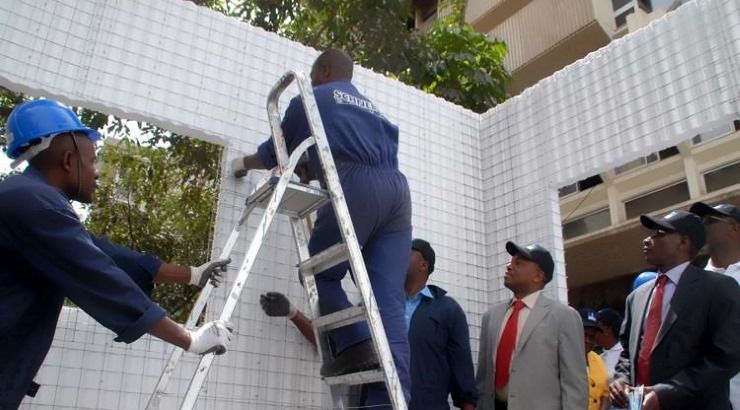Residential Projects
More Kenyan Firms Venture into Prefabs Housing Market
Companies heavily invest in prefab houses for low and middle-income Kenyans.

The high cost of housing in Kenya is slowly pushing home builders to embrace the use of prefabricated building technology, which promises to cut costs by up to 30 per cent.
This has prompted several local and international companies to invest heavily in the provision of prefab houses to low and middle-income Kenyans who are in dire need of affordable housing.
Mabati Rolling Mills (MRM) is one of the Kenyan firms that are betting billions of shillings on the low-cost housing sector. The roofing materials maker, which ventured into the prefab housing market in 2011, is currently selling ready-made steel houses to low-income earners.
In November 2011, the firm entered into a partnership with Equity Bank to provide home loans of at least Sh48,000 to salaried individuals and businessmen with a monthly income of at least Sh20,000.
The National Housing Corporation is also going big on prefabricated housing. The firm has invested Sh1 billion in the construction of a prefabs factory in Machakos County, with a capacity to produce 126,720 expanded polystyrene panels a year.
The panels are touted as capable of delivering stronger structures compared to those built with conventional stones while cutting costs by up to 30 per cent.
During the commissioning of phase one of Jamii Bora’s housing project in Kajiado in 2010, Ingrid Munro – the founder of the low-cost housing firm revealed that the development was adopting structural insulated panels (SIPs) that would lower the cost of a home to Sh4.9 million from Sh10 million.
RELATED: Foreign Investors Scramble for Kenya Prefabs Homes Market
The SIPs are made by sandwiching a core of rigid foam plastic insulation between two structural skins of oriented strand board. The panels can be used as floors, walls, and roofs for residential buildings.
The prefab housing craze has also attracted several international companies that are flocking to Kenya to invest in panel manufacturing factories.
These include US-based International Green Structures (IGS) and China’s Blue Sky – who have spread their technological wings into Kenya in the past three months.
IGS has unveiled a Sh851,400 two-bedroom house built using panels made from compressed wheat husks targeting low-income earners. The firm plans to build houses from wheat husks-panels and metal frames in what is likely to slash costs by 30 per cent.
On the other hand, Blue Sky International has announced plans to pump Sh1 billion into a new plant in Athi River for the production of panels for commercial centres, and high-rise developments such as apartments and hotels.
Early last year, a Malaysian firm, Koto Housing Ltd., excited the local market when it announced it could build a three-bedroom prefab house in 14 days for Sh1.8 million, down from Sh3.6 million.














